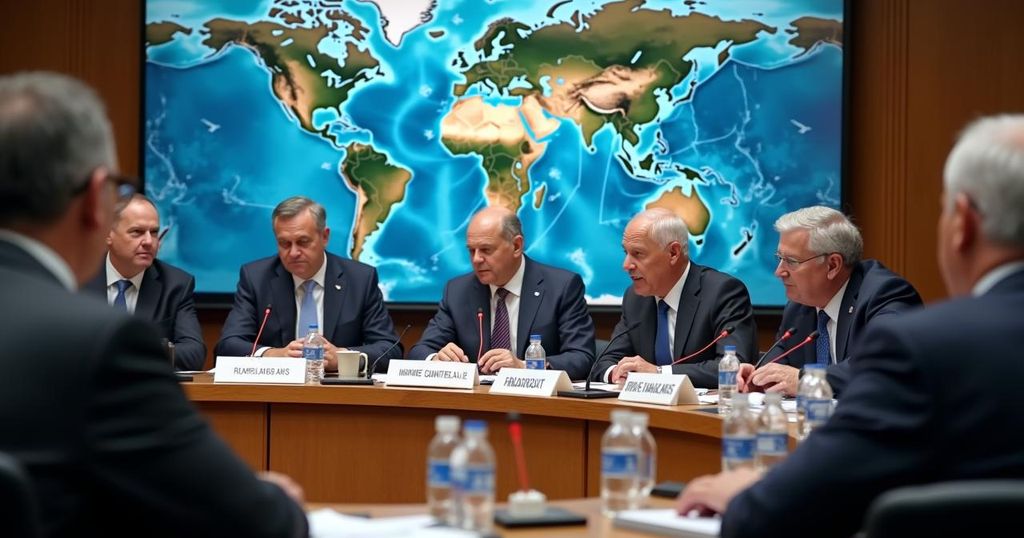Upcoming COP29 Leaders Project Climate Finance Needs in Hundreds of Billions
Leaders at COP29 are expected to set a new climate finance goal in the realm of hundreds of billions, although the actual financial needs are estimated to be in the trillions. The summit aims to replace the existing commitment of $100 billion annually from wealthier nations to developing countries. This comes as global temperatures rise, prompting calls for increased financial support to enable adaptation and emissions reduction efforts.
As the world grapples with the escalating impacts of climate change, leaders convening for the forthcoming COP29 United Nations climate summit in Azerbaijan face tremendous challenges in addressing financing for climate initiatives. While it is widely acknowledged that trillions of dollars are necessary to mitigate the effects and tackle the root causes of climate change, negotiators have indicated that a more pragmatic financing goal would realistically fall within the range of hundreds of billions of dollars. In preparation for the COP29 summit, negotiators will meet in Baku next month to establish a new financing target, replacing the previous commitment by wealthier nations to allocate $100 billion annually for climate finance directed toward developing countries. During a crucial pre-COP29 meeting, parties to the United Nations Framework Convention on Climate Change highlighted that the financial need could amount to trillions, as affirmed by Yalchin Rafiyev, the chief negotiator for the COP29 presidency. However, he emphasized that the public sector’s capacity to mobilize financial resources would more realistically yield hundreds of billions. This development comes at a time when climate change continues to exacerbate natural disasters globally, necessitating increased financial support for developing nations. These countries require substantial funding to adapt to climate impacts and to transition toward renewable energy sources that can reduce their emissions and contribute to global mitigation efforts. Reports indicate that global temperatures have increased by approximately 1.3 degrees Celsius (2.3 degrees Fahrenheit) since the pre-industrial era, with scientists warning that the target of limiting warming to 1.5 degrees Celsius (2.7 degrees Fahrenheit) is becoming increasingly elusive without immediate action. At the COP29 negotiations, over 100 world leaders are expected to participate, enhancing the urgency of collaborative efforts to address climate finance. The advance of the summit has already garnered the registration of 61 presidents, 38 prime ministers, and two crown princes by mid-October, as reported by Azerbaijan’s COP29 presidency. Leaders express the necessity of collaboration, recognizing that while nations have shared but differentiated responsibilities, it is imperative to move beyond blame and towards finding consensus. Azerbaijan’s President, Ilham Aliyev, articulated this sentiment with a call for unity in addressing climate concerns. The emphasis remains on reaching a collective understanding to combat climate change effectively and equitably, without wasting precious time in fruitless discussions. Therefore, as COP29 approaches, the focus will squarely be on establishing a pragmatic and actionable financing strategy that aligns with the urgent demands of climate mitigation and adaptation, underscoring the critical role that international cooperation plays in addressing this global crisis.
The issue of climate change finance has gained critical importance in the context of international efforts to mitigate the effects of global warming. As evidenced by rising average global temperatures and increasingly frequent extreme weather events, both developed and developing nations face urgent needs to fund adaptation strategies and emissions reductions. The previous commitment of $100 billion annually made by wealthy nations was recognized as insufficient in tackling the broader financial requirements needed to effectively combat climate change. Therefore, as COP29 approaches, discussions around the scope of needed financial resources and the mobilization strategies for these funds are crucial in paving the way for more robust climate action.
In summary, the upcoming COP29 summit underscores the pressing need for enhanced climate finance, with leaders recognizing that while the overall financial requirements are in the trillions, immediate action must focus on establishing a realistic goal possibly amounting to hundreds of billions. As global temperatures rise, the importance of collaborative international efforts and financial commitments to support developing nations cannot be overstated. The summit will serve as a critical platform for advancing these discussions, fostering unity and action against the common threat of climate change.
Original Source: kfgo.com




Post Comment